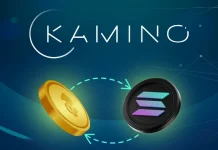
Change is the only constant in the blockchain industry; volatility combined with new ventures can make monumental market shifts. With Bitcoin taking most of the world’s attention, altcoins and businesses running on the blockchain are close behind. We observed some significant breakthroughs this week, and the only way to stay ahead of the curve is to be in the know. We have compiled a list of events that have impacted the industry this week, so here is a weekly roundup of everything that has happened in the blockchain world in the third week of June.
-
India imposes a $2.2 million fine on Binance in a regulatory crackdown
India’s Financial Intelligence Unit (FIU) has imposed a hefty $2.25 million fine on Binance, a popular cryptocurrency exchange, for violating the country’s anti-money laundering rules. The Prevention of Money Laundering Act (PMLA) imposed the penalty after a dispute with the FIU. In January 2024, authorities issued show-cause notices by Binance and other crypto exchanges in India, resulting in their ban from operating in the country. However, in April 2024, the FIU allowed Binance and KuCoin to resume operations under certain conditions after imposing a penalty. This recent fine adds to Binance’s previous run-ins with regulators and highlights ongoing compliance and regulatory oversight challenges for the platform.
-
Ripple Labs’ SEC settlement reduced from $2 billion to $102.6 million
Recent developments in Ripple Labs’ legal dispute with the SEC include a reduction in the proposed settlement amount from $2 billion to $102.6 million. The SEC’s rationale behind the reduced settlement is to set a precedent for cryptocurrency players and deter misconduct in the future. Accepting the settlement would provide financial relief and demonstrate compliance with regulatory standards. Still, there is a need for more clarity on the classification of XRP as a security, potentially influencing institutional investors’ perception and trading of XRP. Declining the settlement might result in a prolonged battle with uncertain outcomes and potentially harsher repercussions. The eventual payment could impact how the SEC approaches cryptocurrency matters moving forward.
-
BitMEX to list 10x leverages ZROUSDT & TREMPUSDT perpetual contracts
BitMEX recently revealed the introduction of two contracts, ZROUSDT and TREMPUSDT, set to kick off on June 21, 2024. These contracts, margined with Tether, will empower traders to magnify their positions by up to 10 times, providing them with options and flexibility for boosting their profits. BitMEX plans to inform traders about the launch of these contracts through updates on their website and social media platforms, aiming to enhance trading activity and liquidity. Despite the opportunities for gains, BitMEX also emphasized the heightened risks associated with these contracts. BitMEX advised traders to handle these contracts with caution.
-
Taiko set to upgrade BCR protocol to version 1.7.0 in July
Taiko plans to update its BCR mainnet protocol to version 1.7.0 on July 1st. While this update will maintain compatibility with Taiko-geth and client releases, it will introduce some protocol changes that could affect block proposers and provers. Implementing the Hekla protocol might lead to block suggestions and transaction verification issues. As a result, all participants involved in Hekla will have to adjust their transaction settings. With the protocol, blocks must now have their assigned prover also act as the proposer, leading to the deprecation of block proposal parameters. This adjustment aims to improve gas efficiency by eliminating unnecessary hook calls from the process.
-
BitMEX moves Bitcoin Insurance Fund to new addresses for security and transparency
BitMEX has updated its Bitcoin Insurance Fund, moving the remaining Bitcoin from addresses to new wallets. This step is part of BitMEX’s efforts to make use of block space and boost security and efficiency. This transfer will not impact the fund’s total balance or user activities such as trading, positions, deposits, and withdrawals. BitMEX has reassured users that the move will be transparent to avoid any confusion or misinformation from sources. The platform’s dedication to transparency is clear in its blog posts, which keep users informed about the process and its effects.
As we conclude this week’s blockchain news, the trend of the regulations catching up to the exchanges was rising. Yes, incidents in the past do underscore the significance of enforcing strict regulations for centralized exchanges (CEX). The cryptocurrency market’s trustworthiness and security rely heavily on adhering to money laundering (AML) protocols. As regulatory scrutiny increases, exchanges must comply with regulations to maintain trust among users and investors. Stay tuned for updates on how these developments will impact the digital currency landscape.









